English
Writing
- Non-chronological report.
- Poetry.
Reading Skills
- Class Novel: The Stolen Spear.
- Retrieve answers from the text and record accurately.
- Words and phrases that capture the reader’s interest and imagination.
- Identify words and phrases to include in our own writing.
Grammar / Punctuation / Spelling
- Prepositions.
- Adverbs [for example, then, next, soon, therefore].
- Subordinate clauses & subordinating conjunctions.
- Form nouns using prefixes (super-, anti-).
Maths
Number: Addition and Subtraction
- Add and subtract numbers with up to three digits, using formal written methods of column addition and subtraction.
Multiplication and Division
- Recall and use multiplication and division facts for the 3, 4 and 8 multiplication tables. Count in multiples of 3, 4 and 8.
- Write and calculate mathematical statements for multiplication and division using the multiplication tables they know, mental strategies and progressing to formal written methods.
Reasoning
- Solve problems, including missing number problems, using number facts.
Science
Forces and Magnets
- To learn about contact and non-contact forces, including friction and magnetism.
- To investigate frictional and magnetic forces, and identify parts of a magnet and magnetic materials.
Computing
Create a PowerPoint Presentation
- Create slides using text (bold, italic or underline).
- Use slide transitions.
- Copy and organize slides as required.
- Insert pictures and animations.
- Evaluate the layout of presentation slides effectively.
History
Through the Ages
- Learn about changes in Britain from the Stone Age to the Iron Age.
- Describe the everyday lives of people from past historical periods.
- Describe ways in which human invention and ingenuity have changed how people live.
Geography
One planet, Our World
- Learn about the layers of the Earth and plate tectonics.
- Discover the five major climate zones.
- Learn about and examine significant places in the United Kingdom.
Greek
Greek Advanced: Read:Identity key words in a text to answer questions, achieve fluency in reading in Greek, Spelling:High frequency words, and topic vocabulary, Grammar:Distinguish the gender of nouns and apply the right endings, distinguish between nouns and verbs, use of adjectives,Writing: Write the continuation of a story using dialogues and honorific plural.
Greek Beginners: Talking about school (Describing my classroom, my pencil case and what I do at break-time).
Greek Culture
Greek Myths: A brief overview of myths including character lists and vocabulary. Discussions of traditions in Ancient Greece/ moral of the story/ character description.
Greek Urns- trip to the House of Ceramic Art
Christmas Traditions in Greece
Music
- Exploring vocal abilities in a range of an octave exercising musical intervals up to a 6th.
- Singing while keeping a steady beat as part of a group.
- Identifying instrumental and vocal parts within a structure.
- Developing the ability of reading musical notation and playing the Glockenspiel at the same time as part of an ensemble.
- Rehearsing and performing in front of an Audience (Christmas celebration).
Art & Design
Bonfire Night Art /Remembrance Day Art / Prehistoric Pots / Christmas Art
- Use preliminary sketches in a sketchbook to communicate an idea or experiment with a technique.
- Improve their mastery of art and design techniques, including drawing, painting and sculpture with a range of materials (inc. paint & clay).
- Create a 3-D form using malleable or rigid materials.
PE
Physical development
- Dribbling/passing with the hands/feet.
Cognitive development
- Working as a team.
- Respect.
PSHE
Health and Wellbeing – Think Positive
Students learn about feelings and emotions, making good choices, and nurturing resilience through applying a positive approach to life. Students will be introduced to mindfulness, and learn about how thoughts link.
Philosophy
- We look at developing skills like critical and creative thinking, communication, empathy, and logical reasoning.
- Students learn to reflect on their beliefs, work collaboratively, and apply ethical concepts like fairness and justice to real-life situations.
- Students learn these skills through games, role play and mini projects.
How can you help at home?
- Establish a regular homework routine.
- Listen to your child read as often as you can and ask questions.
- Encourage your child to complete the AR test once they have read their book.
- Help your child learn weekly spellings.
- number bonds to 100, counting in 3s, 4s and 8s, mental addition and subtraction up to 100.
